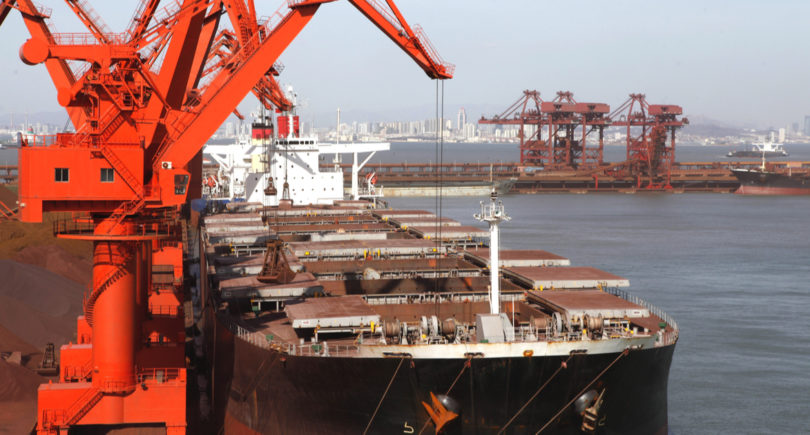
Posts Industry human resources 147 06 May 2025
The acute shortage of personnel is one of the main challenges of the industry
Despite the realities of wartime, Ukrainian iron and steel companies are finding new ways to attract employees and increase salaries at their enterprises. Veteran programs, staff motivation initiatives, and support for employee welfare are recognized in the relevant ratings of business publications, which highlights the sector for candidates and investors. However, the shortage of employees in the industry is currently very acute.
Salary revision
Even during a full-scale war, the largest iron and steel companies traditionally review their employees’ salaries in the spring.
Starting from April 1 this year, the salaries of employees of Metinvest Group’s Ukrainian production and service companies were increased. The revision is based on a differentiated approach: salaries are increased by up to 20% depending on the category of employees, with the largest increase for employees in skilled, high-demand occupations. The salaries of line managers and administrative and managerial staff increased by 10% on average.
Last year in May, the company increased salaries for employees of production and repair facilities in Ukraine by an average of 15%, and for certain shortage professions – up to 30%. In September 2024, the salaries of administrative and management personnel and employees of service assets were increased.
Prior to the recently announced increase, the average salary at Metinvest was UAH 28 thousand, and the average salary for key technological professions was UAH 35 thousand. The Group’s Ukrainian industrial enterprises also have two types of bonuses: production bonuses for meeting targets and product quality, and team bonuses for operational efficiency. Other business areas use a KPI-based incentive system.
As of March 1, 2025, Interpipe, a producer of pipes and railway products, increased salaries for employees of all divisions, most of which are located in the frontline region (Dnipro, Nikopol, Samara). The salary increase is differentiated depending on the demand for the profession in the labor market.
A year ago, the company announced an average 20% salary increase for its employees. In March 2023, salaries increased by an average of 15%.
“Today, the company employs more than 9 thousand people and systematically increases their income. The increase in salaries will not only improve the market attractiveness of work at Interpipe, but also the well-being of employees, and increase contributions to the state budget through taxes,” the company said.
Starting May 1, 2025, ArcelorMittal Kryvyi Rih will increase employee salaries by an average of 15%. Depending on the level of current salaries and working conditions, the increase will range from 5% to 22%. In addition, back in March, the company paid the “13th salary” in the amount of 50% of the average monthly salary for the actual time worked in 2024.
In general, according to the Federation of Metallurgists of Ukraine (FMU), the average salary at iron and steel companies increased by 14.4% y/y last year – to UAH 27.3 thousand.
Staff shortage
The iron and steel companies surveyed by GMK Center, as well as Ukrainian businesses in general, are experiencing an acute shortage of staff caused by Ukrainians leaving the country for safer regions and mobilization. The security situation is also challenging for the steel sector, with all major enterprises located in the frontline regions.
Currently, the number of vacancies is as follows:
- Metinvest – 3.7 thousand,
- ArcelorMittal Kryvyi Rih – more than 1 thousand,
- Interpipe – over 500.
90% of Interpipe’s vacancies are for workers. Metinvest’s most in-demand specialties are machine operators and assistant machine operators in various positions, crushers, steel casters, blast furnace furnace operators, etc.
Domestic iron and steel companies recognize that staff shortages are one of the factors affecting production performance. Therefore, the industry had to revise its approaches to recruitment, optimize and automate production processes and internal procedures to meet production targets.
Metinvest notes that it is ready to hire most of those who want to work. In addition, the company has reduced the duration of training and adapted its educational programs to focus on the most important skills required for a particular position. For example, while the training for a steelworker’s helper used to last six months, it has now been reduced to two.
Among other things, ArcelorMittal Kryvyi Rih conducts internal retraining. As a result, many of the company’s employees have several professional certificates and can work in different positions. This creates a flexible and efficient production system, increases employee income and reduces downtime.
“Expanding production remains our strategic priority, and we are actively working to overcome staffing challenges while maintaining high product quality and operational efficiency,” ArcelorMittal Kryvyi Rih said.
Interpipe offers jobs to employees without the necessary experience and knowledge, subject to on-the-job training in the chosen specialty. All programs are licensed and consist of a theoretical and a practical block. In addition, an employee can learn a related profession, which expands his or her skill level and allows for staff rotation in production.
However, the wartime challenges and shortage of personnel do not negate the need for the domestic iron and steel industry to maintain its competitiveness in the global market by expanding product lines, increasing production volumes, and making investments. For example, during the war, Interpipe invested $83 million in product quality and new production lines. The company even continued to implement a project at its pipe plant in Nikopol, a city officially recognized as a war zone, as it is located 7 km from occupied Enerhodar.
“We don’t have the luxury of stopping investments. Our customers are in the EU and the US, and we have to meet their requirements or we will lose them,” Interpipe said.
Work with staff
The industry is currently doing everything possible to attract, retain and motivate staff.
One of the competitive advantages of the iron and steel industry in the labor market is the ability to book employees. The industry’s enterprises are critical, and therefore provide reservations within 50% of the number of people liable for military service.
Other areas include the following.
Training and retraining of employees. For example, Metinvest finances the acquisition of additional professions by its employees, which enables them to perform various tasks, thus compensating for staff shortages. In some cases, employees can receive higher education at the company’s expense.
For ArcelorMittal Kryvyi Rih, one of the key areas of corporate training is the AMU 360 online platform, which provides access to a wide range of training programs, from various online courses to communication with colleagues and experts.
Interpipe employees can receive higher education at the company’s expense; bachelor’s and master’s degrees in modern technical specialties are offered at the Ukrainian State University of Science and Technology. The company also provides employees with the opportunity to improve their skills – they study new equipment, materials, modern technological processes, etc.
Attracting new employees. Companies are looking for staff on the open market, offering training from scratch for most professions.
In addition, the number of women in the workforce is growing. According to Interpipe, while women used to be mostly engineers, quality controllers, flaw detectors, pump operators, and crane operators, the company now hires them for jobs with a high level of automation or for jobs that do not require a lot of physical activity.
ArcelorMittal Kryvyi Rih encourages women to take up jobs that were traditionally considered male and creates equal opportunities for all. For example, last year the company launched a training group for crane operators from scratch, and this year it plans to add other specializations.
Working with veterans. The reintegration of veterans also helps companies strengthen their teams. For example, Metinvest offers training and employment for former military personnel, helping them to adapt to civilian life and integrate into work processes. In 2024, the group spent $250,000 to support and adapt veterans, and about $550,000 is planned for 2025. Other iron and steel companies have similar comprehensive programs, prototypes of which appeared in 2014.
Cooperation with educational institutions. Most iron and steel companies cooperate with educational institutions of various levels in one form or another.
Metinvest Group has its own educational tool, Metinvest Polytechnic, the first private Ukrainian iron and steel university. The new generation university trains specialists in demand both in the country and abroad. Since 2022, more than 1,080 people have become its students, and more than 4,300 people have taken advanced training courses and workshops. In early April, Metinvest Polytechnic announced the start of the 2025 admission campaign. The university offers 19 bachelor’s and 20 master’s programs, scholarships, internships and employment.
Since 2019, Interpipe has been investing in the development of technical education in the region. Modern laboratories, workshops and classrooms are being set up in schools, colleges and universities in Dnipro. In addition, with the involvement of the company’s specialists, the curricula are being adapted to meet current market needs. Students of specialized educational institutions can undergo industrial or pre-graduation practice or internships at the company, with the possibility of further employment.
ArcelorMittal Kryvyi Rih launched the New Factory dual education project in 2021 and continued it despite the war. In 2023, the second group of students began their two-year training in technical specialties, and 9 educational institutions in Kryvyi Rih became partners of the initiative.
The iron and steel industry participates in career fairs, offers internships and first jobs at its enterprises, thus encouraging young people to choose a future profession in the industrial sector.
Ukrainian steel companies remain key employers and taxpayers in the regions where they operate and invest in social programs. However, without government support, it will be difficult for the industry to maintain its performance and address the staff shortage.




